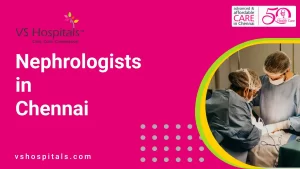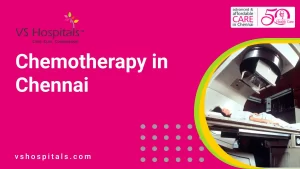An oncologist is basically a doctor who treats cancer and provides medical care to patients who are diagnosed with cancer. He is also called a cancer specialist. The medical field of oncology has three major areas based on treatments: medical oncology (chemotherapy, immunotherapy, and targeted therapy) surgical oncology (removal of tumor and nearby tissue), and radiation oncology (radiation therapy).
If any person is diagnosed with cancer, it is essential to visit a cancer hospital in India and get advanced treatment from the best oncologist in India as they can manage patients of all ages throughout the course of the disease.
What is an Oncologist?
An oncologist is a physician who specializes in diagnosing, treating, and managing cancer. They provide care through various therapies such as chemotherapy, radiation, surgery, and immunotherapy. Oncologists also monitor patient progress, offer palliative care, and collaborate with other specialists to ensure comprehensive cancer treatment and support throughout the patient’s journey.
What does an Oncologist do?
An oncologist is one who takes special care of cancer patients by getting to know their family history and lifestyle. This further helps them to identify the type of cancer to deliver quality and comprehensive care in making a successful outcome. All these start with diagnosis and their role includes:
1. Recommending tests to determine if the person has cancer or not.
2. Explaining the cancer diagnosis including the stage and type of cancer.
3. Discuss all treatment options and your treatment choice.
4. Helping the patients to manage symptoms and side effects of cancer and its treatment.
Thus, by approaching a well-known cancer hospital in India like the VS Hospitals, the patient can get to know the treatment plan which may include more than one type of treatment, such as cancer medications, surgery, and/or radiation therapy. This means creating a patient’s overall treatment plan with a multidisciplinary team involving different types of best oncologist in India and healthcare providers to help them get the best care possible.
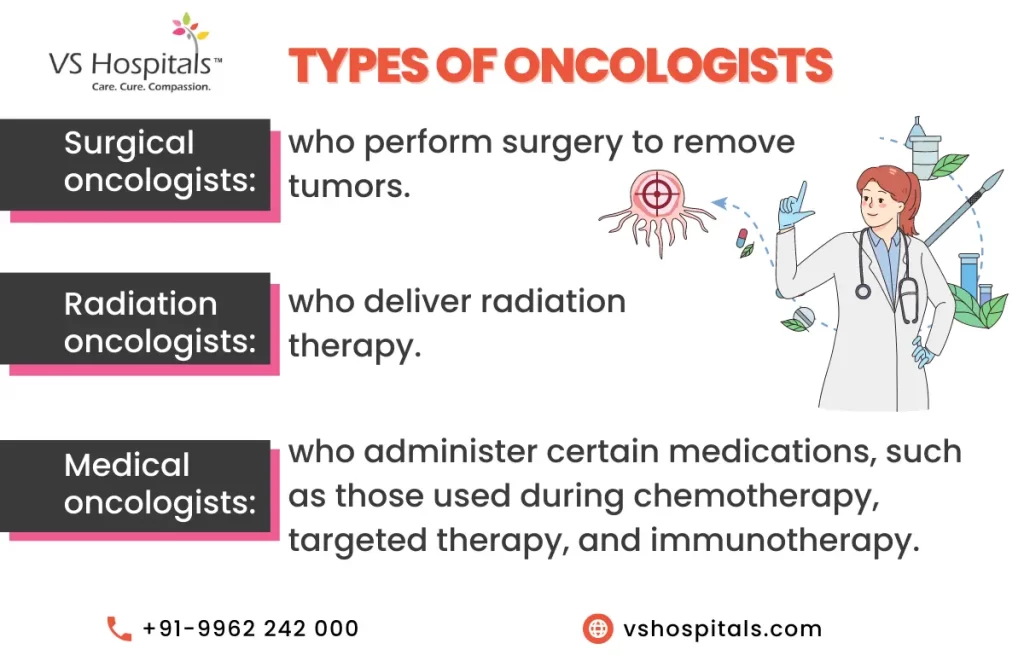
Best Oncologist in India
Prof. Dr. S. Subramanian
Speciality: Medical Oncologist
Qualification: MD, MRCP (UK)
Experience: 60+ Years
Location: Chennai
Hospital: VS Hospitals
Prof. Dr. S. Subramanian is an esteemed Medical Oncologist with over 60 years of extensive experience in Oncology. He is the Founder Chairman and Managing Director of VS Hospitals and serves as the Head of the Department and Senior Medical Oncologist. Renowned as the Best Oncologist in India, Dr. Subramanian has dedicated his career to advancing cancer treatment and patient care.
His profound expertise and pioneering contributions in oncology have earned him national and international recognition. Prof. Dr. Subramanian’s commitment to medical excellence and patient-centric care continues to inspire the medical community and provide hope to countless cancer patients worldwide.
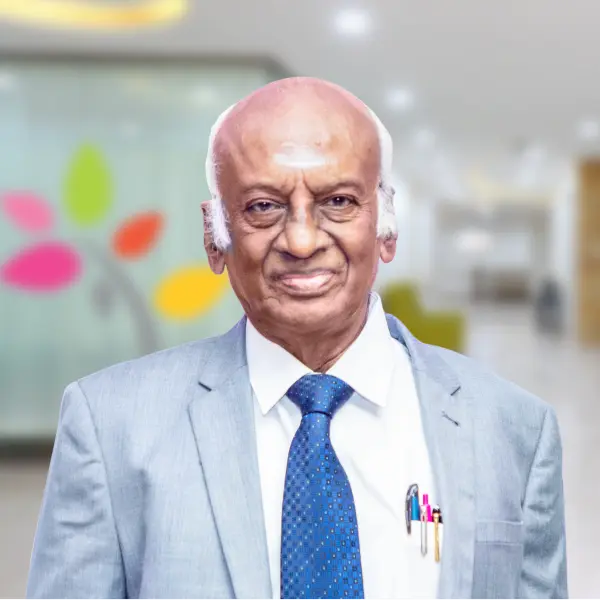
Dr. D. S. Manohar
Speciality: Medical Oncologist
Qualification: M.D., D.M
Experience: 35+ Years
Location: Chennai
Hospital: VS Hospitals
Dr. D. S. Manohar is a distinguished Medical Oncologist with over 35 years of experience in the field of Oncology. As a Senior Consultant Medical Oncologist at VS Hospitals, he has made significant contributions to cancer treatment and research. Recognized as one of the Best Oncologists in India, Dr. Manohar specializes in a comprehensive range of cancer treatments, offering personalized care to his patients.
His extensive expertise and commitment to medical excellence have earned him a reputation for being at the forefront of oncology. Dr. Manohar’s dedication to advancing cancer care continues to provide hope and improved outcomes for patients across India.
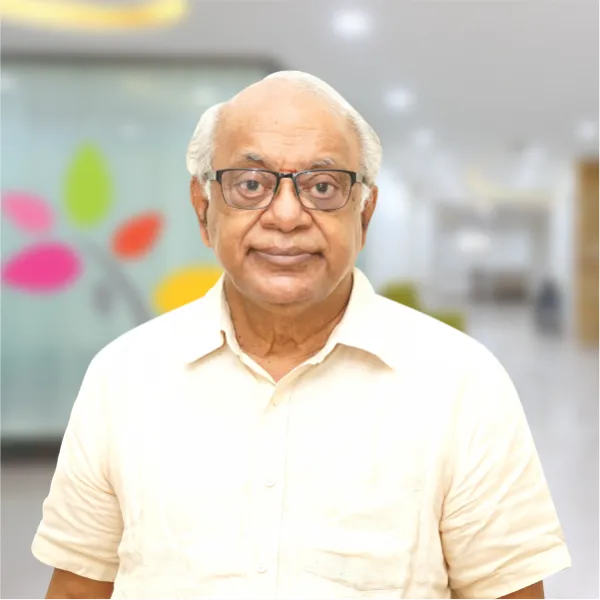
Dr. S. Nithya
Speciality: Medical Oncologist
Qualification: MBBS, M.D., D.M.
Experience: 13+ Years
Location: Chennai
Hospital: VS Hospitals
Dr. S. Nithya is a prominent Medical Oncologist with over 13 years of experience in Oncology. As the Associate Director and Senior Consultant at VS Hospitals, she has earned a reputation for excellence in cancer treatment. Specializing in a wide range of cancers, Dr. Nithya’s patient-centric approach and advanced medical expertise have positioned her as one of the Best Oncologists in India.
Her dedication to clinical research and compassionate patient care has significantly contributed to the field of oncology. Dr. Nithya’s commitment to medical innovation and excellence ensures that her patients receive the highest quality of care.
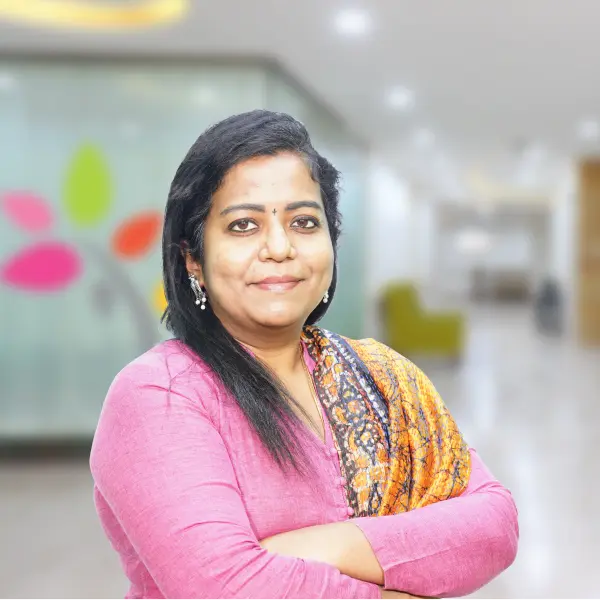
Dr. K. Chandralekha
Speciality: Medical Oncologist
Qualification: MBBS, DMRT, M.D. (Radiation Oncology), D.M. (Medical Oncology)
Experience: 6+ Years
Location: Chennai
Hospital: VS Hospitals
Dr. K. Chandralekha is a skilled Medical Oncologist and Radiation Specialist with over 6 years of experience in Oncology. As a Consultant at VS Hospitals, she combines expertise in both medical and radiation oncology to offer comprehensive cancer treatment.
Dr. Chandralekha’s dual specialization allows her to provide integrated care tailored to each patient’s needs, establishing her as one of the Best Oncologists in India. Her dedication to patient care and continuous learning in the field ensures that she remains at the forefront of oncology advancements, delivering cutting-edge treatment and compassionate support to her patients.
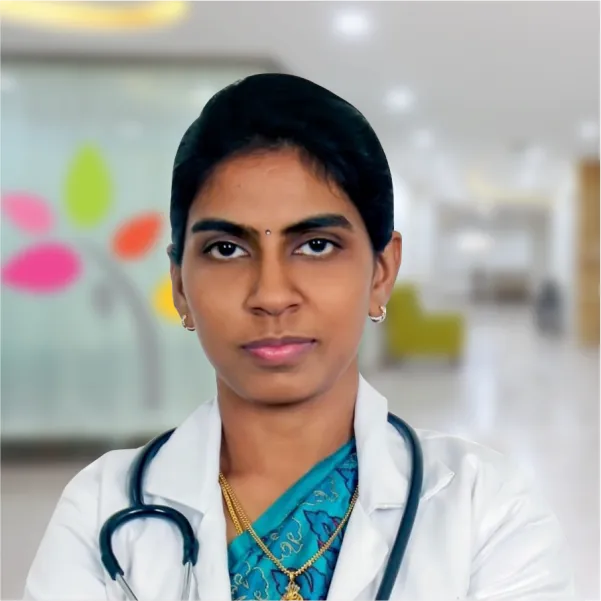
Dr. Vijay. G
Speciality: Hemato Oncologist & Medical Oncologist
Qualification: MBBS, MD (Pediatrics) (AIIMS), DNB (Pediatrics), DM (Medical Oncology)
Experience: 8+ Years
Location: Chennai
Hospital: VS Hospitals
Dr. Vijay. G is a proficient Hemato Oncologist and Medical Oncologist with over 8 years of experience. As a Consultant at VS Hospitals, he specializes in both adult and pediatric oncology, offering comprehensive care for patients of all ages. With qualifications from prestigious institutions like AIIMS, Dr. Vijay is recognized as one of the Best Oncologists in India.
His expertise in hematology and oncology, combined with his compassionate approach to patient care, ensures that he provides the highest quality treatment. Dr. Vijay’s dedication to advancing oncology and improving patient outcomes is evident in his clinical practice and patient interactions.
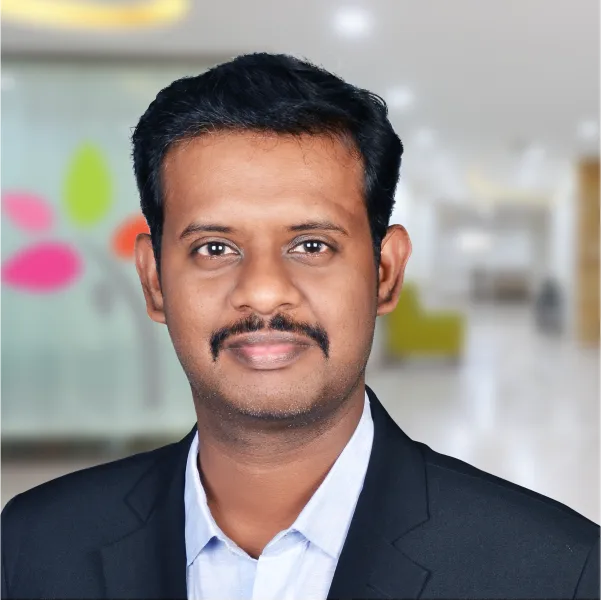
Dr. CH Dheeraj
Speciality: Medical Oncologist
Qualification: MBBS, MD (Gen-Medicine), DM (Medical Oncology), DNB (Gen-Medicine)
Experience: 1+ Year
Location: Chennai
Hospital: VS Hospitals
Dr. CH Dheeraj is an emerging Medical Oncologist with over a year of dedicated experience in Oncology. Serving as a Consultant at VS Hospitals, he brings fresh perspectives and up-to-date knowledge to the field. Dr. Dheeraj’s qualifications, including his MD in General Medicine and DM in Medical Oncology, equip him with a robust foundation in cancer treatment.
Recognized as one of the promising talents among the Best Oncologists in India, he is committed to providing high-quality, patient-centered care. Dr. Dheeraj’s early career achievements and dedication to clinical excellence make him a valuable asset to the oncology community.
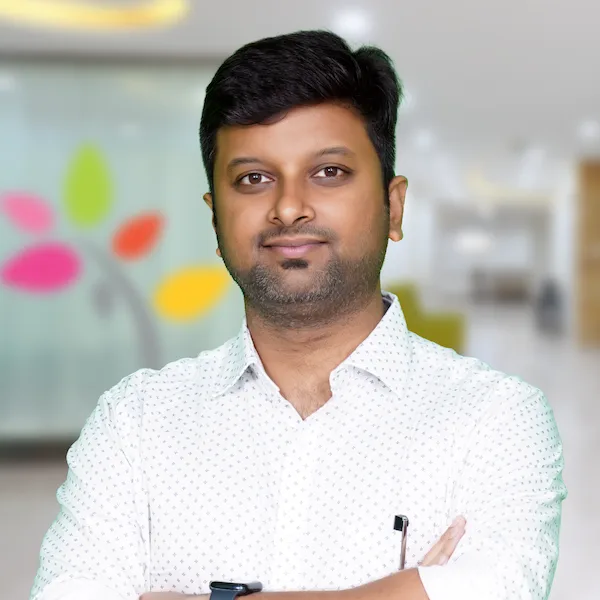
Dr. S. Jagadesh Chandra Bose
Speciality: Surgical Oncologist
Qualification: MBBS, M.S., MCh (Surgical Oncology)
Experience: 30+ Years
Location: Chennai
Hospital: VS Hospitals
Dr. S. Jagadesh Chandra Bose is a distinguished Surgical Oncologist with over 30 years of extensive experience. As a Senior Consultant at VS Hospitals, he specializes in complex surgical procedures for cancer treatment, making him one of the Best Oncologists in India.
Dr. Bose’s advanced qualifications, including an MCh in Surgical Oncology, reflect his commitment to excellence in the field. Known for his precision and compassionate care, he has successfully treated numerous patients, contributing significantly to advancements in surgical oncology. Dr. Bose’s dedication to improving cancer outcomes ensures that his patients receive the highest standard of surgical care.
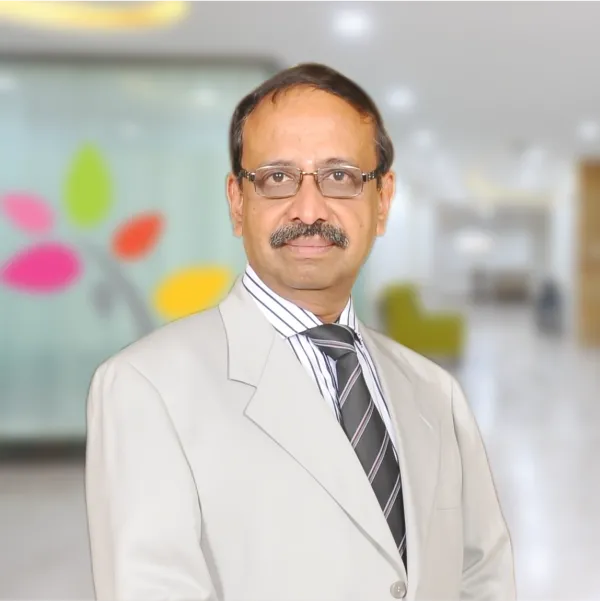
Dr. Saravanan Periasamy
Speciality: Surgical Oncologist
Qualification: DNB (Gen. Surg.), MRCS (EDIN), MCh (Surgical Oncology)
Experience: 14+ Years
Location: Chennai
Hospital: VS Hospitals
Dr. Saravanan Periasamy is a distinguished Surgical Oncologist with over 14 years of experience in Oncology. As a Senior Consultant at VS Hospitals, he specializes in advanced surgical procedures for cancer treatment. His qualifications, including an MCh in Surgical Oncology and MRCS from Edinburgh, highlight his dedication to excellence in cancer care.
Dr. Periasamy’s expertise spans a wide range of surgical oncology, making him one of the Best Oncologists in India. His patient-centric approach, combined with his extensive experience, ensures that patients receive the highest standard of surgical care. Dr. Periasamy’s commitment to innovation and compassionate care continues to positively impact cancer treatment outcomes.
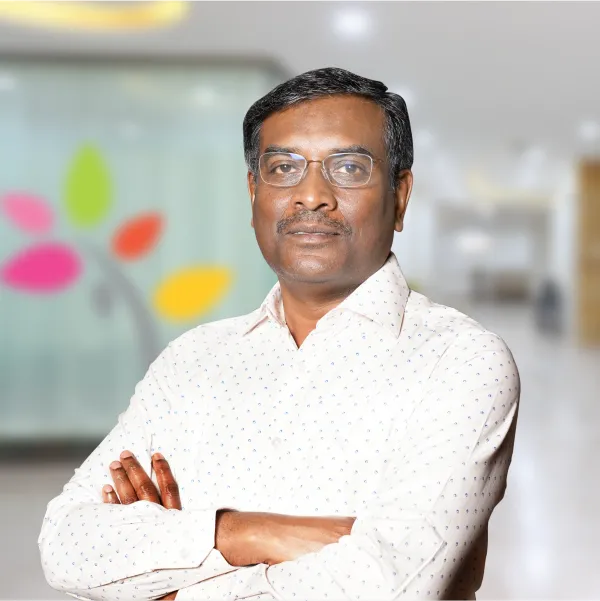
Dr. D. Suresh Kumar
Speciality: Surgical Oncologist
Qualification: MS (Gen. Surg AIIMS), DNB, MCh (Onco), DNB (Onco)
Experience: 18+ Years
Location: Chennai
Hospital: VS Hospitals
Dr. D. Suresh Kumar is a highly experienced Surgical Oncologist with over 18 years of expertise in Oncology. As a Senior Consultant at VS Hospitals, he specializes in advanced surgical techniques for cancer treatment. His impressive qualifications, including an MS from AIIMS and dual DNB certifications, underscore his commitment to surgical excellence.
Recognized as one of the Best Oncologists in India, Dr. Kumar is known for his meticulous approach and compassionate patient care. His extensive experience and dedication to innovation in oncology ensure that patients receive the highest quality of surgical treatment. Dr. Kumar’s contributions to the field have significantly improved cancer care outcomes.
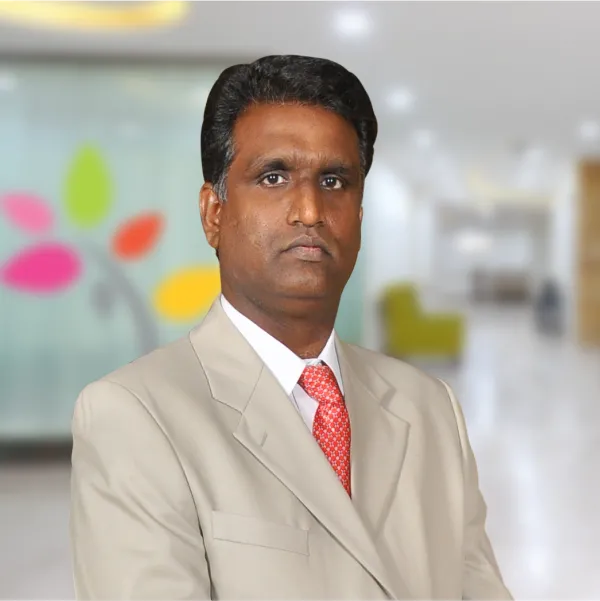
Dr. V. Balasundaram
Speciality: Radiation Oncologist
Qualification: M.D., R.T.
Experience: 25+ Years
Location: Chennai
Hospital: VS Hospitals
Dr. V. Balasundaram is a distinguished Radiation Oncologist with over 25 years of experience in Oncology. As a Consultant at VS Hospitals, he specializes in advanced radiation therapy techniques for cancer treatment. His extensive experience and qualifications, including an M.D. and expertise in Radiotherapy, have earned him recognition as one of the Best Oncologists in India.
Dr. Balasundaram is known for his patient-centric approach and commitment to delivering precise, effective radiation treatments. His dedication to improving cancer care outcomes through innovative radiation therapies ensures that his patients receive the highest standard of care. Dr. Balasundaram’s contributions to oncology have significantly advanced the field of radiation oncology.
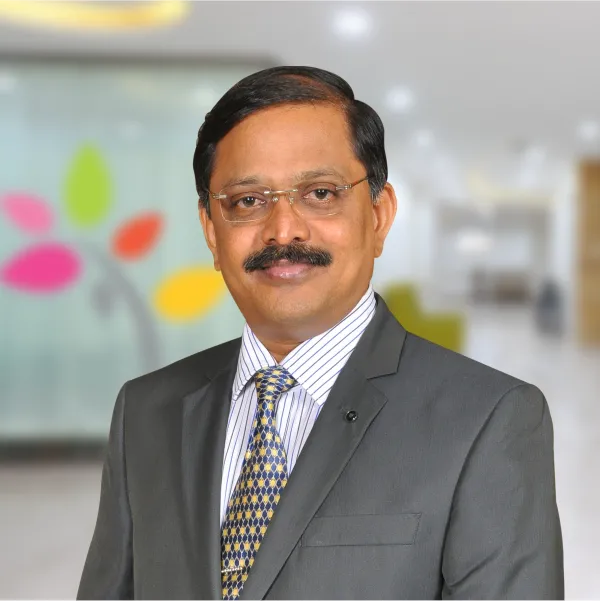
Reasons to See an Oncologist
Your family doctor or general practitioner may refer you to the best oncologist in India if they can’t determine a cancer diagnosis or want the opinion of an expert in a specific field. This intent is to narrow down and rule out the potential causes of issues related to cancer so that you get the best course of treatment possible.
Tests an Unusual Lump or Growth
Usually in a normal clinic or hospital, there won’t be advanced equipment to diagnose a cancerous tumor, so the doctor will refer you to an oncologist for further testing. Most suspected tumors are harmless or benign, but this referral helps the doctor:
- Makes sure you have peace of mind with a negative test.
- Rule out cancer from the cause of symptoms you are experiencing.
- Catch a potentially malignant or harmful tumor in its early stages to make successful treatment.
- Direct comprehensive care in the event of a positive test result.
Provides Cancer Treatment
If you are confirmed with a cancer diagnosis, you’ll be referred to the best oncologist in India who will review your case individually, and explain details regarding the treatment options to help you restore to a normal lifestyle.
Depending on the stage of cancer, and any potential health complications, the treatment plan provided at the cancer hospital in India could include:
- Radiation slows a tumor’s growth without affecting the healthy tissues.
- The surgical procedure to remove a tumor.
- Targeted therapy to limit the spreading of tumors to other areas of your body.
- Chemotherapy treatment to destroy cancer cells.
Diagnose and Treat Cancer Disorders
Many oncologists provide the best chance of cure after conducting screening tests for the patients. It is recommended by the best oncologist in India to decide the appropriate treatment plan for you. The cancer diagnosis includes:
- Physical exam.
- Laboratory tests.
- Imaging tests.
- Biopsy.
The goals of cancer treatment are to provide cutting-edge treatments with a reasonable cancer treatment cost in India. Besides that, cancer treatments are focused on:
- Cure to help patients live a normal life span.
- The primary treatment is to remove cancer from the body or destroy the cancer cells.
- Adjuvant treatment kills the cancer cells that remain after primary treatment.
- Palliative treatment to help relieve side effects of treatments or signs and symptoms caused by the cancer itself.
Does Seeing an Oncologist Mean I Have Cancer?
Not necessarily. Seeing an oncologist does not automatically mean that you have cancer. An oncologist is a doctor who specializes in the diagnosis and treatment of cancer, but they may also treat other conditions that are not cancer-related.
There are many reasons why a person might be referred to the best oncologist in India, including abnormal blood test results, unexplained weight loss, persistent fatigue, or other symptoms that could be related to cancer or other illnesses. Additionally, some people may have a family history of cancer and choose to see an oncologist as a precautionary measure or for genetic testing.
It is important to keep in mind that while cancer can be a serious and life-threatening condition, many people with cancer are able to receive effective treatment and go on to live long and healthy lives. Furthermore, seeing an oncologist does not necessarily mean that you have advanced or late-stage cancer, as cancer can often be detected and treated at an earlier stage, leading to better outcomes.
If you have been referred to an oncologist or are considering making an appointment, it is important to discuss any concerns or questions you may have with your healthcare provider. Your oncologist can work with you to develop a personalized treatment plan that meets your individual needs and helps you achieve the best possible outcome.
What Should I Expect During My First Visit to an Oncologist?
Your first visit to an oncologist can be overwhelming and intimidating, but it is an important step in understanding your condition and developing a treatment plan. Here are some things you can expect during your first visit to an oncologist:
1. Medical History and Physical Exam: Your oncologist will likely ask you about your medical history, including any symptoms you have been experiencing and any medications you are currently taking. They may also perform a physical exam to check for any signs of cancer or other health issues.
2. Diagnostic Tests: Depending on your symptoms and medical history, your oncologist may order diagnostic tests such as blood tests, imaging scans (such as CT or MRI scans), or a biopsy to determine the cause of cancer.
3. Discussion of Treatment Options: If you have been diagnosed with cancer, your oncologist will discuss your treatment options with you. This may include surgery, radiation therapy, chemotherapy, immunotherapy, or a combination of these treatments. Your oncologist will explain the benefits and potential side effects of each treatment option and work with you to develop a personalized treatment plan that meets your individual needs.
4. Emotional Support: Coping with a cancer diagnosis can be emotionally challenging. Your oncologist and their team can provide emotional support and connect you with resources such as support groups, counseling services, or other support services that can help you and your loved ones cope with your diagnosis.
Remember, the best oncologist in India like Prof. Dr. S. Subramanian will help you understand your condition, develop a personalized treatment plan, and support you throughout your cancer journey. It is important to ask questions, voice your concerns, and take an active role in your treatment decisions.
Diseases Treated by Oncologists
Oncologists specialize in the diagnosis and treatment of various cancers. They address diseases including:
- Breast Cancer: Malignant tumors in breast tissue.
- Lung Cancer: Abnormal cell growth in the lungs.
- Colorectal Cancer: Cancer affecting the colon or rectum.
- Prostate Cancer: Tumors in the prostate gland.
- Leukemia: Blood cancers affecting the bone marrow and blood.
- Lymphoma: Cancers involving the lymphatic system.
- Ovarian Cancer: Cancer in the ovaries.
- Pancreatic Cancer: Malignancies in the pancreas.
- Skin Cancer: Including melanoma and non-melanoma types.
- Brain Tumors: Abnormal growths in the brain or spinal cord.
Oncologists employ various treatments, such as chemotherapy, radiation therapy, and surgery, tailored to each patient’s specific cancer type and stage.
Side Effects of Cancer Treatment
Cancer treatments, including chemotherapy, radiation therapy, and immunotherapy, can cause various side effects, such as:
- Fatigue: Persistent and overwhelming tiredness.
- Nausea and Vomiting: Common with chemotherapy.
- Hair Loss: Particularly associated with certain chemotherapy drugs.
- Weakened Immune System: Increased susceptibility to infections.
- Anemia: Decreased red blood cell levels, resulting in fatigue.
- Skin Changes: Dryness, rash, or increased sensitivity.
- Mouth and Throat Issues: Sores, dryness, or difficulty swallowing.
- Digestive Problems: Diarrhea, constipation, or appetite changes.
- Neuropathy: Nerve damage causing tingling or numbness.
- Emotional and Cognitive Changes: Memory problems or mood swings.
Management strategies exist, and healthcare providers work to minimize these side effects while effectively treating cancer. Patients should communicate any concerns promptly to their medical team.
Conclusion
There are different surgical procedures to treat several types of cancer. All you have to do is consult with the best oncologist in India to identify the root cause of the cancer disease besides providing sophisticated care and reasonable cancer treatment cost in India. If you or your loved ones have any queries regarding cancer treatment, it is advisable to approach the best oncologist in India like Prof. Dr. S. Subramanian where you can expect an individualized treatment plan with comprehensive care to help you live happier and healthier.
Read also Oncologists in Chennai.

